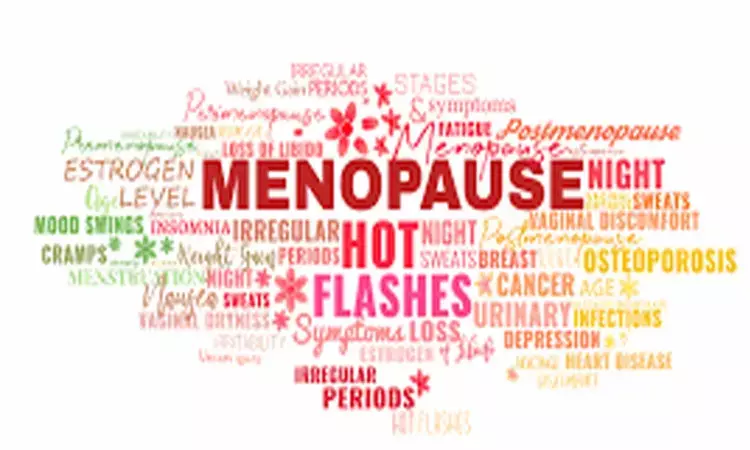- Home
- Medical news & Guidelines
- Anesthesiology
- Cardiology and CTVS
- Critical Care
- Dentistry
- Dermatology
- Diabetes and Endocrinology
- ENT
- Gastroenterology
- Medicine
- Nephrology
- Neurology
- Obstretics-Gynaecology
- Oncology
- Ophthalmology
- Orthopaedics
- Pediatrics-Neonatology
- Psychiatry
- Pulmonology
- Radiology
- Surgery
- Urology
- Laboratory Medicine
- Diet
- Nursing
- Paramedical
- Physiotherapy
- Health news
- Fact Check
- Bone Health Fact Check
- Brain Health Fact Check
- Cancer Related Fact Check
- Child Care Fact Check
- Dental and oral health fact check
- Diabetes and metabolic health fact check
- Diet and Nutrition Fact Check
- Eye and ENT Care Fact Check
- Fitness fact check
- Gut health fact check
- Heart health fact check
- Kidney health fact check
- Medical education fact check
- Men's health fact check
- Respiratory fact check
- Skin and hair care fact check
- Vaccine and Immunization fact check
- Women's health fact check
- AYUSH
- State News
- Andaman and Nicobar Islands
- Andhra Pradesh
- Arunachal Pradesh
- Assam
- Bihar
- Chandigarh
- Chattisgarh
- Dadra and Nagar Haveli
- Daman and Diu
- Delhi
- Goa
- Gujarat
- Haryana
- Himachal Pradesh
- Jammu & Kashmir
- Jharkhand
- Karnataka
- Kerala
- Ladakh
- Lakshadweep
- Madhya Pradesh
- Maharashtra
- Manipur
- Meghalaya
- Mizoram
- Nagaland
- Odisha
- Puducherry
- Punjab
- Rajasthan
- Sikkim
- Tamil Nadu
- Telangana
- Tripura
- Uttar Pradesh
- Uttrakhand
- West Bengal
- Medical Education
- Industry
Severe menopause symptoms often accompany premature ovarian insufficiency

CLEVELAND, Ohio - Hot flashes, insomnia, and vaginal dryness are commonly reported symptoms that accompany the menopause transition. A new study suggests that such symptoms--especially psychological and sexual problems--are worse for women who have premature ovarian insufficiency (POI) than for women undergoing natural menopause. Study results are published online today in Menopause, the journal of The North American Menopause Society (NAMS).
Premature ovarian insufficiency is defined as the cessation of ovarian function that leads to menopause before the age of 40 years. The condition is associated with increased risks for a number of long-term health comorbidities, including osteoporosis, cardiovascular disease, mood disorders, cognitive impairment, and sexual dysfunction. It can also lead to a shorter life expectancy.
Despite research around the various risk factors associated with POI, few studies have examined the effect of POI relative to the prevalence, severity, and factors affecting menopause symptoms. In this new study involving nearly 300 Chinese women, researchers specifically investigated menopause symptoms in women with POI and compared them with the severity and prevalence of similar symptoms in women who experienced natural menopause.
What they found was that women with POI experience a high prevalence of menopause symptoms, especially those in the psychological and sexual domains, and that these symptoms are often more severe than those experienced by women who undergo natural menopause. The symptoms likely to be most severe include mood swings, hot flashes, insomnia, fatigue, and sexual dysfunction (including vaginal dryness, dyspareunia, and decreased libido).
On the basis of these results, the researchers have suggested that healthcare providers be more cognizant of psychological complications and sexual dysfunction risks in women with POI and work with them to identify options for relief.
Results are published in the article "Menopausal symptoms in women with premature ovarian insufficiency: prevalence, severity and associated factors."
"This study of Chinese women showed that those with POI had more prevalent menopause-related symptoms than women with menopause at the average age. It is important to note that regardless of the prevalence or severity of symptoms, women with POI should receive hormone therapy at least until the average age of menopause unless there are contraindications to its use in order to mitigate potential long-term adverse health effects, including fractures, heart disease, cognitive impairment, and early mortality--in addition to mood disturbances and sexual dysfunction," says Dr. Stephanie Faubion, NAMS medical director.
Hina Zahid Joined Medical Dialogue in 2017 with a passion to work as a Reporter. She coordinates with various national and international journals and association and covers all the stories related to Medical guidelines, Medical Journals, rare medical surgeries as well as all the updates in the medical field. Email: editorial@medicaldialogues.in. Contact no. 011-43720751
Dr Kamal Kant Kohli-MBBS, DTCD- a chest specialist with more than 30 years of practice and a flair for writing clinical articles, Dr Kamal Kant Kohli joined Medical Dialogues as a Chief Editor of Medical News. Besides writing articles, as an editor, he proofreads and verifies all the medical content published on Medical Dialogues including those coming from journals, studies,medical conferences,guidelines etc. Email: drkohli@medicaldialogues.in. Contact no. 011-43720751


